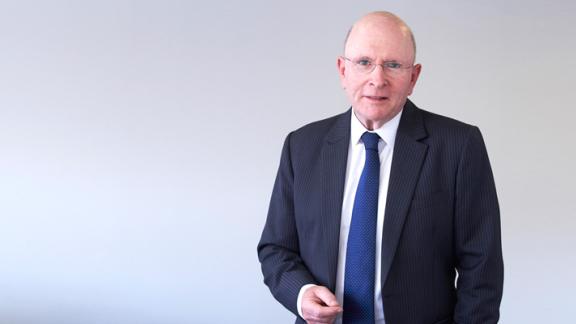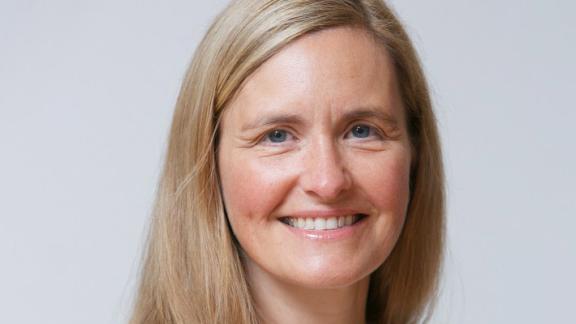NHS Reset: Daddy (and Mummy), what did you do in the Great Corona War?

In this blog, part of a series of comment pieces from NHS Confederation members and partners, Niall Dickson, chief executive of the NHS Confederation, looks at lessons already learnt that should be considered when resetting the NHS.
The 1915 recruitment poster shows a daughter asking her father: "Daddy, what did YOU do in the Great War?" Aimed at encouraging enlistment, this warning of future accountability was one of the defining messages of that existential emergency, loudly echoed in the Second World War, the sacrifices of which we have just honoured.
Leaders grappling with today’s national emergency will be held to account too and doubtless hard questions will be asked. We must hope though that the inevitable enquiry will produce lessons for the future, rather than another round of the blame game.
For it is already becoming clearer that many of the immediate challenges are but illustrations of more fundamental flaws in the way we organise and run our services. Take this week's revelations about the Turkish gowns and now with tiger goggles. We all know protective equipment has been, and in many ways still is, an operational and logistical headache, but it goes further than that.
As far as we can see, the national picture is that there are still significant issues in different parts of the service. This is around the quantity and quality of supplies, hand-to-mouth deliveries, continuing dents in staff confidence, and the fact that we have yet to crack the challenge in care homes where the epidemic still rages. All that said, the overall picture does appear much better than it was, and it is moving in the right direction.
But the latest announcement promising a huge increase in domestic production of PPE shows how this issue like many others has much wider connotations.
First, as a huge part of the national economy, we have looked at the NHS as a consumer of public resource, not as a key and integral component of our economic and business success. There is an opportunity now for the service to work more closely and effectively with local and UK suppliers in 'peacetime' as well as in 'war'.
The movement towards anchor istitutions should be just the start – building bonds with industry and education, including critically those involved in digital and life sciences, must be part of our new future. It is happening but not everywhere.
Of course, international suppliers should be part of the mix. When it comes to PPE they will always cost less, but now we can see how essential it will be to create a sustainable domestic industry here that can be jacked up in an emergency. It would not be foolish to think we could see 20 per cent of our specialist protective equipment being produced here. Lord Deighton’s welcome appointment over the entire PPE issue should solidify this ambition.
Secondly, we need to ask how the service has traditionally used this equipment? The cries from some quarters that reusing inevitably meant compromised safety were misplaced. Hospitals with appropriate laundry and sterilisation facilities are showing what is possible. As in so many other aspects of life, the 'use once and throw away' culture is rapidly becoming anachronistic.
Thirdly, our collective failure to manage PPE supplies to care homes and smaller units of operation within the NHS is also part of a wider issue. In part, this has been a genuine logistical challenge. But the fact that there was no effective distribution system beyond hospitals, and that our national attention was almost exclusively focused on preventing a surge that would topple the acute sector, is also about how we view the system as a whole. The care sector in particular has struggled to make its voice heard, in spite of valiant efforts by ADASS, Care England and the National Care Forum, among others.
Fourth, and at the risk of repetition, if we are to reset the NHS and the care system, it cannot just be about capturing innovation, it has to be about creating a different mindset.
The question ‘What did you do in the corona war?’ needs to encompass, ‘What did you do for other parts of the system?’ And that is a challenge to all of us, whatever part we play.
The emergence of mutual aid in so many areas is a wonderful example of what is possible. So too are the great examples of GPs, community services and acute hospitals providing advice on infection control, use of PPE and supporting clinical assessments and decisions in care homes. Now perhaps is the time to see what can be built on, as much through local initiatives as national direction, and to think too about home care and support for personal carers, who remain vulnerable and largely forgotten.
This is the time for systems to coordinate and sweep away divisions and views that belong to the 20th century. If we perpetuate at any level, including the centre, the silo mentality that has prevailed too long, we will not meet the huge challenge of demand, and we will not create a sustainable system.
At the NHS Assembly this week, Richard Stubbs, the leader of Yorkshire and Humber AHSN, described the Reset as a culture challenge. He was right, and the challenge is as much for representative bodies such as the NHS Confederation, and for local leaders and frontline staff, as it is for politicians and national leaders of the service.
Race matters
The latest grim statistics which reveal that ethnic minorities are almost twice as likely to die with COVID-19 as white people - even after taking into account age, health and disability and other social factors - are shocking.
We knew before this crisis that pandemics exacerbate existing inequalities and systemic issues, but the extent of this and the fear it causes, demands more work to understand why it is happening as well as a clear and practical response.
The values which underpin the NHS should make the service better at this than it has been. At the NHS Confederation, (including in our role as NHS Employers) we are determined to do more to protect staff but also to empower them and to explore ways to target services and resources. We hope to announce more on this in the weeks ahead.
Niall Dickson, Chief Executive, NHS Confederation. Follow Niall on Twitter @NHS_Niall



